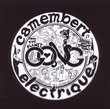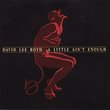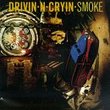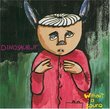| All Artists: Gong Title: Radio Gnome Members Wishing: 4 Total Copies: 0 Label: Blue Plate Caroline Release Date: 7/23/1990 Genres: Dance & Electronic, Alternative Rock, Jazz, Special Interest, New Age, Pop, Rock, Classic Rock Styles: Electronica, Avant Garde & Free Jazz, Experimental Music, Progressive, Progressive Rock, Psychedelic Rock, British Invasion Number of Discs: 1 SwapaCD Credits: 1 UPC: 017046166225 |
Search - Gong :: Radio Gnome
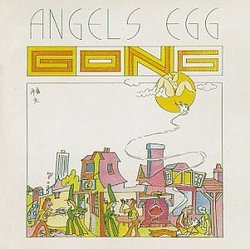 | Gong Radio Gnome Genres: Dance & Electronic, Alternative Rock, Jazz, Special Interest, New Age, Pop, Rock, Classic Rock
|
Larger Image |
CD DetailsSimilar CDs
Similarly Requested CDs
|
CD ReviewsDaevid Allen is the George Clinton of Jazz Rock part 2 Alastair McLean | Wellington, New Zealand | 11/28/2004 (5 out of 5 stars) "If you want to know why I start this review with a statement like that, have a look at the reviews for the "Flying Teapot" album - which is part one in a trilogy of albums Gong put it in the early 70's. "Angel's Egg" is part 2 and takes the characters and themes introduced on "Flying Teapot" a few steps further. This album utlises a wider range of music and as such is more complex and rewarding than its predecesor. Everything from Indonesian klungkungs and english pub sing-alongs, combine with the band's highly rhythmic and hypnotic space rock to produce one of the most unique recordings of the 70s. Tim Blake really comes into his own on this one and his spacey synthesizer work still sounds fresh and inspired 30 years after it was recorded. This is no mean feat considering how ugly the synthesizer became in the later 70's and 80's. The real beauty of this record is that it avoids the usual traps of a lot of 70's progressive concept albums by treating the central "story" as something more dreamlike and disconnected than relying on a begining, middle and end. Imagery is used more than a plot and if I was to point to a record which is genuinely "psychedelic" then this would be one of the first I'd aim at. I have read peripheral stories about the band, and apparently this was recorded in a wood at night using mobile equipment and if you listen hard enough on headphones you can hear owls and other animals in the background on occasions. I've personally never done this but if you want to have a go then good luck. It's probably true and it gives you an idea of how much a product of its time it is. The best tracks are obviously the most structured and highlights are "Outer temple", "Oily way" and the closing "Eat that phone book coda", which is worth it for the title alone. The whole thing is one out of the box though and is a perfect add on to "Flying Teapot". If you get both then you might as well check out "You" as well. It's all unique entertainment. " Get the Remastered version instead. kireviewer | Sunnyvale, Ca United States | 07/06/2005 (5 out of 5 stars) "Like most Gong albums, Angel's Egg has been released on CD a number of times. Some of the versions even have a different cover. The different versions have varying sound quality. Some of the older CD's are not so bad and some are.
But, there is a new remastered version that has excellent sound. That is the one to get. It also has 3 bonus tracks and a nice booklet. This is just another great Gong album. It has some of the spaciest and wildest music of any of the Gong albums. It also has a number of great songs. While it is very spacy, it is also very coherent and holds together well. The only downside is that there are a few short silly songs. This album is as good as You, but somewhat different. There are more songs, and they are a bit shorter than what is on You. Gong released 3 albums in the 1970's dealing with Radio Gnome Invisible and the Pothead Pixies (Flying Teapot, Angel's Egg and You). In all, Gong released 5 to 7 albums in the 1970's (depending on how you are counting) before splintering. The leader of the band, Daevid Allen left, and the remainder became a jazz fusion band. Throught the eighties, Allen would reform the space version of Gong, and the jazz version got renamed Pierrie Moerlen's Gong. The jazz band disbanded in the eighties. Allen reformed Gong permanently in the late nineties, and the band has put out a number of studio and live albums. They are all very good. The last three studio albums have carried on the story of the Pot Head Pixies." |

 Track Listings (15) - Disc #1
Track Listings (15) - Disc #1